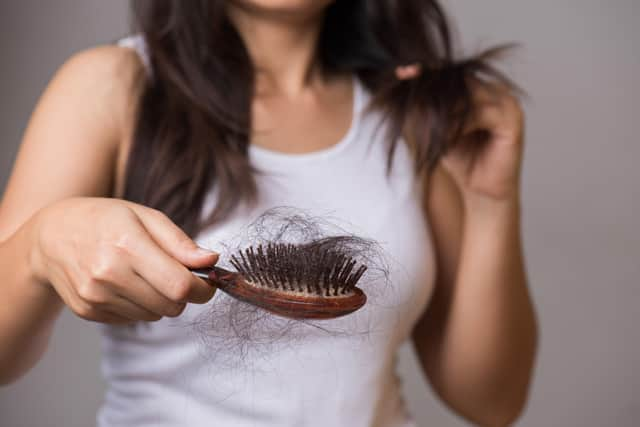Edinburgh is the UK city most concerned about stress-related hair loss, study shows
and live on Freeview channel 276
A study has revealed that Edinburgh residents are the most concerned about hair loss, with 1,520 monthly Google searches on average on the matter. Leeds and Manchester complete the top three cities with the highest proportion of citizens turning to Google for answers.
Ahead of Stress Awareness Day next week (November 2), beauty experts Milk + Blush analysed Google search data to discover which of the UK’s major cities had the highest proportion of citizens concerned about stress-related hair loss in the last year. Edinburgh is in first place, with one in every 321 residents searching for ways to combat hair loss induced by stress, a total of 1,520 average monthly searches. Leeds was second, with one in every 336 of its 503,388 residents concerned about losing their locks and 1,500 searches per month on average. In Glasgow 1 in 387 people were concerned about stress related hair loss.
Advertisement
Hide AdAdvertisement
Hide AdMilk + Blush hair expert Nicole Petty revealed some ways to tackle stress-related hair thinning. She said: “The foods you eat have a direct impact on the growth, strength, and volume of your hair. In particular, it's important to consume plenty of protein as the hair follicles are mostly made up of a protein called keratin. So, when an adequate amount of protein is consumed, the hair produces higher levels of keratin, enabling the hair to repair and grow.


“Similarly, ensure you're eating foods rich in iron, Omega-3, Vitamins A, C, & E, Biotin, Zinc, and Selenium. By filling your body with the essential nutrients, you can encourage regrowth and prevent future hair loss or weakness.”
According to statistics, 35 million men and 21 million women suffer from hair loss worldwide, with women who experience high-stress levels 11 times more likely to lose their locks. Three types of hair loss can be associated with high-stress levels – telogen effluvium (excessive shedding), alopecia areata (an autoimmune disorder) and trichotillomania (urge to pull hair out). The most common, telogen effluvium, is a form of hair loss characterised by hair thinning and an increase in hair shedding and can be triggered by significant stress or a traumatic event. With this type, less hair is grown during the anagen phase, making the hair growth process significantly slower and pushing a large number of hair follicles into the telogen/resting phase.
Nicole added that exercise and relaxing can help your body fight off hair loss. “When exercising, your heart beats faster, causing your blood flow and circulation to increase. In turn, this results in more nutrients and oxygen reaching your scalp, which hair needs to grow. Plus, with the increased cortisol levels in your system, the serotonin your body releases when you exercise is the best medicine you need to combat stress.
Advertisement
Hide AdAdvertisement
Hide Ad“You can reduce stress by practising controlled breathwork, ensuring you get plenty of good quality sleep, indulging in a scalp massage, and putting self-care at the top of your list of priorities. By relaxing, you'll help prevent cortisol levels from rising and promote positive endorphins that aid hair growth and a happier mood."